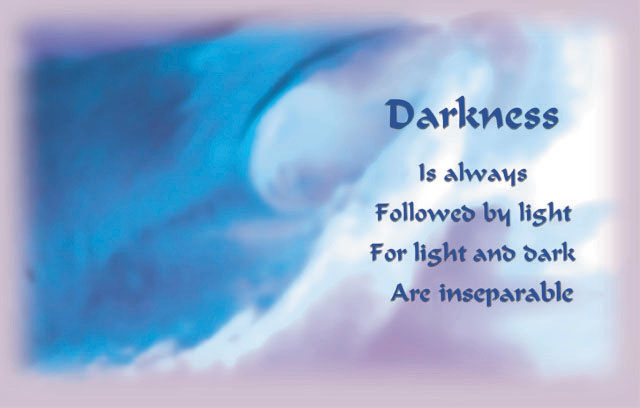Learn about the Elisabeth Kübler-Ross 5 stages of grief from Mary Stefanazzi – a skilled professional who met and trained with Elisabeth’s foundation from 1989 to 1991. Follow the highlighted text to read Mary’s account of meeting Elisabeth Kübler-Ross.
When you think of grief what is your first thought? My guess is that you answered tears or sadness. Tears and sadness are indeed part of grief and loss but there is more to it according to Elisabeth Kübler-Ross.

There are 5 distinct stages to grief which I will now outline. But first there are two important things to keep in mind as you read:

- The first is that while grief is generally associated with death and dying, it is also natural to experience any of the 5 stages of grief in response to any of life’s losses – the break up of a relationship, the loss of a job, the death of a beloved pet animal, the loss of health, and so many more losses. While the list is endless, the grieving process can involve these 5 stages.
- The second is that people do not necessarily experience any or all of the following stages or experience them in any particular order. We can dip in and out of any stage in all kinds of haphazard ways during the grieving process. This is natural and simply the way it happens. However for the purposes of understanding and teaching others what can happen when a person is grieving this model representing five stages of grief has been set out by Elisabeth Kübler-Ross. Elisabeth’s work is sometimes misrepresented by implying that a person goes through each stage in order. Life, as most of us will know, does not happen along ordered lines. Elisabeth more than many others was well aware of that fact.
Denial
When something unexpected happens to us our first reaction can go something like this… ‘This cannot really be happening to me… I must be imagining it…. pull yourself together…‘ There is nothing wrong with denial. It is a perfect example of how creative nature is by allowing us to only download as much difficult information as we are able to handle at any given time. Denial happens automatically – we don’t decide ‘I’m going to deny my reality right now because I can’t take it all in.’ Denial happens in painful as well as unexpected happy occasions. Big lottery winners often respond to their luck by saying ‘I just can’t believe it!‘

Anger
When an experience is too difficult to assimilate in one go the reaction can be to blame someone else for what is happening to us. ‘Why did God do this to me?‘ is an expression we often hear after a tragedy. Once we experience anger we are no longer in the stage of denial. Anger causes great pain for people when they do not realize it is a natural part of the grieving process – in particular after a death. Many people feel great distress at finding they are angry with their beloved who has died. The sad part about anger is that most people are unsure how to deal with their anger in a healthy way. Equally most people don’t know how to respond to anger in another person. We all need to learn about anger to understand what is a healthy expression of anger, and what is unhealthy. None of us were born with these skills. They have to be learned and practiced.
Bargaining
This is where we try to do deals with whatever we take God or Ultimate Reality to be… ‘Just get me through today and I’ll change… I promise…‘ A good example of this is during the stages of grief after divorce – how many people promise to remain friends in an attempt to ease the pain and loss of the break up – but how many do you know who actually succeed? Something similar happens as children grieve when they can be heard bargaining with God… ‘If I’m good maybe Mammy and Daddy will stop fighting and love one another again – I’ll try real hard this time…‘
Depression
As the full reality of our loss begins to sink in or download fully, we can feel depressed. It is important to read this as the literal meaning of the word – to press down. You will often hear people describe this feeling as ‘I feel down today…’ which literally describes a person’s energy level as – ‘down’ or lower than usual. If you think about it for a moment… when you are dealing with something difficult in your life it takes up a lot of physical energy. People often report feeling exhausted even when doing very little. Remember that any and all kind of emotional turmoil takes a lot of physical energy – so plenty of rest and good food is vital during these times.

It is helpful to note that Elisabeth Kübler-Ross published her book On Death and Dying in 1969 setting out these 5 stages of grief. Her use of the word depression at that time was to describe a natural human emotion – not a medical condition. It is unfortunate that we use the same word today to describe two very different human experiences. I have no doubt from my personal experience of meeting Elisabeth, (when I stayed at her farm in Virginia in 1991), that she would be outraged at people being prescribed drugs in response to the natural human experience of grief. Her way to work with depression was to support the person to acknowledge the impact of the loss as far as is possible and reasonable. Of course, you will feel down – it is a completely reasonable and natural part of dealing with grief and loss, death and dying. Feeling down is a perfectly natural and healthy part of the grieving process. Yes, grieving can be difficult at times, but it is still a healthy natural process.
Acceptance
To use a computer analogy – this is the stage of grief where the full impact of our loss has completely downloaded in our psyche. At this stage we have let it all in. We are sure to find plenty of examples of this stage if we look around us. When someone has grieved fully then can be seen to move on with their lives. It is not that they don’t miss the person who is gone – it’s that they have come to the stage of acceptance. This means they are no longer denying their loss (stage 1); blaming others for it or giving out about it (stage 2); doing deals with God to change it (stage 3); or feeling down about it (stage 4).

As I said at the beginning nature is marvelous in how it only downloads as much as we can handle – that is why the 5 stages of grief happen so differently for each person. There is no right way to grieve. There is no prescribed time frame for the grieving process. You would therefore be well advised to not listen to anyone who tells you there is. Trust your instincts. To support yourself take plenty of rest when you feel tired, eat good wholesome food, and exercise to the extent that you are able. Maintaining your routine as best you can is important, especially when you don’t care about it anymore. Talk to people who you trust are willing and able to listen to what you are actually thinking and feeling.
Hopefully you can now see how natural the 5 stages of grief are. It also follows that not everybody who is grieving needs counseling or psychotherapy. However if you, or someone you know, is having particular difficulty with any of the 5 stages of grief, some people find some stages more difficult than others, do give me a call.
Some people prefer to talk to someone who is neutral and not part of their family or everyday network of contacts. As each persons needs are different I welcome hearing from you and will be glad to answer any questions.
